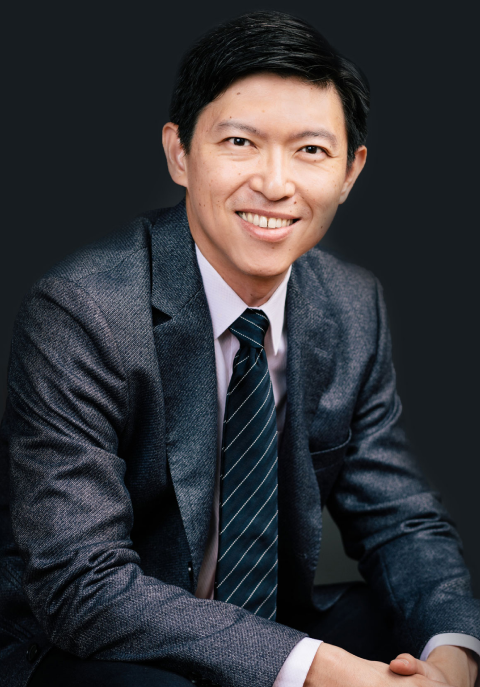Shoulder Tendonitis
Shoulder tendonitis is a common shoulder injury. Although it may cause significant discomfort and disrupt daily activities, it can be treated with the appropriate treatment options, which generally do not require surgery. Consult Dr. Ong about treatment options suitable for your condition.


What Is Shoulder Tendonitis?
Shoulder tendonitis is the inflammation of the rotator cuff or the biceps tendon. The rotator cuff is a group of muscles and tendons surrounding the shoulder joint, which helps secure the upper arm bone to your shoulder blade.
Shoulder tendonitis is one of the most common types of shoulder injuries, which may cause significant swelling and pain.
Causes of Shoulder Tendonitis
- Overuse of the shoulders
- Injury to the shoulder from a direct hit or falling
- Improper exercise or sports technique
Symptoms of Shoulder Tendonitis
- Shoulder pain & weakness
- Loss of shoulder mobility
- Swelling or tenderness in your shoulder
- Popping sensation
How Is Shoulder Tendonitis Diagnosed?
A full review of your medical history, as well as a physical examination to check for swelling and pain, may be conducted.
Further imaging tests may be performed to confirm the diagnosis. An x-ray examination can eliminate other issues that may be causing pain, such as a bone fracture. Ultrasound and MRI scans can also display detailed images of your shoulder to determine the severity of the damage.
What Are the Treatment Options?
Non-Surgical Treatment
Common treatment methods include:
- Rest
- Ice compression to minimise swelling and pain.
- Anti-inflammatory medications such as ibuprofen and aspirin
- Physical therapy
- Cortisone injection
Surgical Treatment
Surgery may be recommended for more severe cases of shoulder tendonitis (where the rotator cuff or bicep tendons tear partially or completely) or when non-surgical treatment options fail to alleviate symptoms.
A rotator cuff surgery is usually performed to remove the inflamed tissues and bone. There are generally two types of rotator cuff surgery:
- Traditional open surgery. This is done on the most severe cases, which involves replacing the damaged tissues.
- Arthroscopic surgery. This is a minimally invasive procedure and is usually performed on mild cases of tendonitis.
Why Do Patients Choose
Dr Ong Kee Leong?
Dr. Ong Is Passionate In Sports, Giving Him A Deep Understanding Of Sports-Related Injuries And How They Can Be Treated
Personalised And Professional Approach To Deliver High-Quality Orthopaedic Care Based On The Most Up-To-Date Literature
Fellowship Trained Surgeon With 15 Years Of Experience In Orthopaedic Conditions
Detailed Aftercare Plan To Ensure Smooth, Long-Term Recovery
Problem-Oriented, Well-Organised & Individualized Treatment Plans Catered To Your Specific Needs
Specialist In The Management Of Sports Injuries & Degenerative Conditions Of Shoulder & Knee Joints
Knowledgeable and pleasant clinical staff to assist you with your every need detailed aftercare plan
Our Care Is Conveniently Accessible At Mount Elizabeth Novena and Farrer Park Hospital
Minimal Waiting Time For Initial Consultation
Assistance With Medical Claims (e.g. Medisave & Integrated Shield Plans)
“At our clinic, we generally try to explore non-surgical treatment such as activities modification, physiotherapy and orthotics before recommending invasive intervention options.”
DR ONG KEE LEONG

About Dr. Ong Kee Leong
Dr. Ong Kee Leong is a fellowship-trained orthopaedic surgeon. He subspecializes in shoulder and knee, foot and ankle, hand wrist and elbow surgeries, arthroscopic sports surgery, and the management of sports-related injuries.
He has been registered with the Singapore Medical Council as a specialist in Orthopaedic Surgery since 2011.
- MBBS, National University of Singapore (NUS) Faculty of Medicine 2001
- Member of the Royal College of Surgeons of Edinburgh 2007
- Master of Medicine in Orthopaedic Surgery (NUS) 2007
- Fellow of the Royal College of Surgeons of Edinburgh in Orthopaedic Surgery 2011
- Health Manpower Development Plan (HMDP) Scholarship, Ministry of Health 2012-2013
- Sports Surgery and Arthroscopy in Germany (Hannover)
- Adjunct Assistant Professor, Lee Kong Chian School Of Medicine, Nanyang Technological University
- Senior Clinical Lecturer, Yong Loo Lin School of Medicine, NUS
Billing & Payment
Consultation fees are charged based on length of consultation,
and start from SGD$150 (within 30 minutes).
Modes of Payment
We accept the following modes of payment:
- Cash
- PayNow & PayLah
- All major Credit Cards
If you are insured and would like to use a Letter of Guarantee (LOG) from the major insurers in Singapore, please contact us and our friendly clinic staff will assist you and provide more information if required.
Can I Claim Through My Medisave Account? (For Singaporeans and PR)
Yes, you can. Our Clinic is an accredited day surgery clinic by the Ministry of Health. Singaporeans and Permanent Residents may use their Medisave for eligible orthopaedic inpatient procedures and hospitalizations.
The exact amount would depend on the complexity of the procedure. If you have any enquiries, feel free to speak to our friendly clinic staff about using your Medisave account.
Integrated Shield Plans (Singaporeans and PRs)
Yes, patients who have purchased Integrated Shield plans with riders for co-insurance and deductibles will be able to use them in our clinic for eligible procedures. For more information, contact us to find out if your procedure is claimable.
The 6 Approved Integrated Shield Insurers are:
- NTUC Income’s IncomeShield and Enhanced IncomeShield
- American International Assurance International Co’s (AIA) HealthShield Gold
- Great Eastern Life Assurance Co’s SupremeHealth and SupremeHealth Plus
- Aviva Ltd’s MyShield
- Prudential Assurance Co’s PRUShield
- AXA Shield
Have an enquiry about your condition or a certain treatment?
Fill up the form and we will get back to you soon!
Visit Us Today
Mon – Fri: 9.00AM – 5.00PM
Sat: 9.00AM – 1.00PM
Mon – Fri: 9.00AM – 5.00PM
Sat: 9.00AM – 1.00PM
Mon – Fri: 9.00AM – 5.00PM
Sat: 9.00AM – 1.00PM